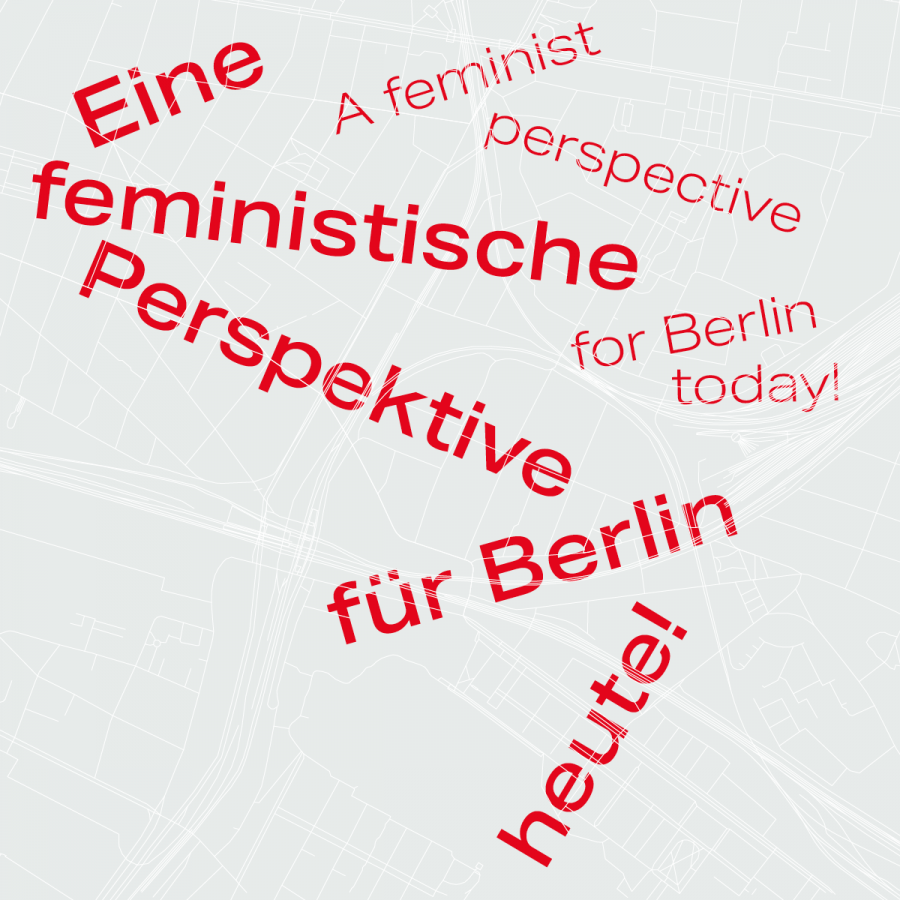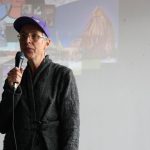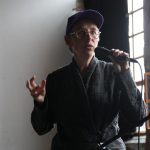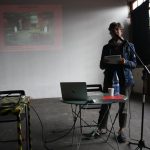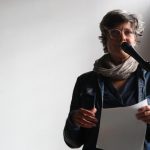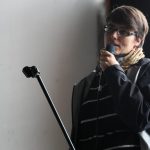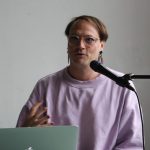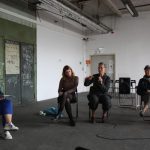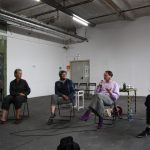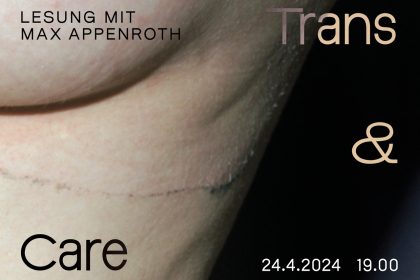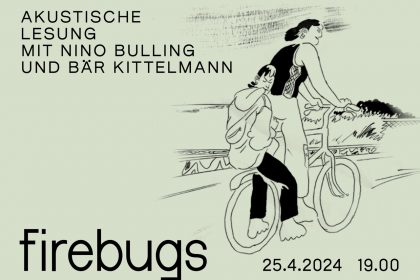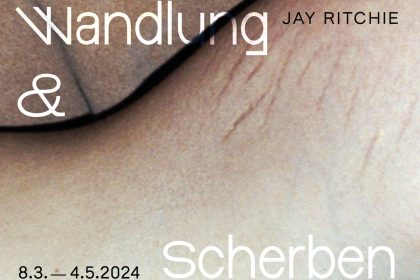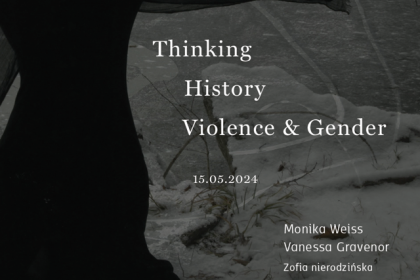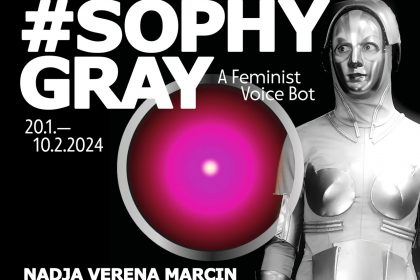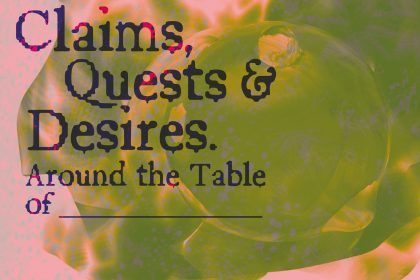The symposium brings together practitioners and theorists who address emancipatory projects in architecture, urban planning, and urban sociology in different ways. An interdisciplinary and cross-generational exchange should demonstrate possible answers to questions regarding a feminist and non-sexist city.
The symposium takes place in the frame of the event series Feminist Housing (Her)stories for the future. BERLIN, BAUHAUS and BEYOND
Moderation: Caroline Rosenthal
14:00 Reception by alpha nova & galerie futura and Moderatorin Caroline Rosenthal
Caroline Rosenthal ist 1985 in Ost-Berlin geboren und dort, sowie in Cambridge (UK) aufgewachsen. Sie studierte Politikwissenschaften und Soziologie in den Niederlanden und der Schweiz. Seit 2012 engagiert sie sich über das Mietshäuser Syndikat für gemeinwohlorientierte Immobilienentwicklung in Berlin und koordiniert seit 2018 ein bundesweites Netzwerk zu diesem Thema. Sie arbeitet außerdem freiberuflich als Moderatorin. Feminismus ist Caroline nicht erst wichtig seit sie 2017 Mutter wurde.
14:15 Dr. Katarina Bonnevier: Touching Architecture or, “hand in glove”
The idea of touching architecture is at the heart in the work of MYCKET (Mariana Alves Silva, Katarina Bonnevier, Thérèse Kristiansson). Their queer artistic research methodology is marked by feminism in contents, produced results and working methods. With the animated dance place “Kepsen” in Jönköping they resonate about the bond between aesthetic expressions and political struggles for civic rights.
Dr. Katarina Bonnevier, Architect SAR, founding member of the Architecture, Design and Art Collective MYCKET, Sweden.
15:00 Prof. Dr. Kerstin Dörhöfer: “Social Housing“ – Feminist Critique and Demands of the 70s and 80s
In the 1970s, mass housing schemes set off a feminist critique of the standardization and normalization of building and its exclusive orientation towards the model of the bourgeois nuclear family in which the woman was fixed in the role of spouse, housewife, and mother. Feminists, on the other hand, made demands for the freedom of choice in terms of forms of living together and the use of space, consideration of women’s everyday lives and the corresponding infrastructure in residential areas. The demands for more involvement from women in the design of the spatial environment were unanimous. What became of these demands? Which developments and experiences can be discerned from today’s perspective?
Kerstin Dörhöfer, Studium der Architektur an der TU Berlin und der TH Wien, einige Jahre Architektur- und Städtebaupraxis in Berlin, Promotion zum Dr.-Ing. für Stadt- und Regionalplanung an der TU Berlin, Professorin für Stadt- und Regionalentwicklung an der Fachhochschule Aachen (1981-86) und für Architektur und Urbanistik an der Universität der Künste Berlin (1986-2008), Forschungen zu Wohnungs- und Städtebau, Architektur- und Stadtentwicklung, Geschlechterverhältnissen und Raumstrukturen.
15:45 Dr. Meike Schalk: Feminist (Working)Environments in Architecture – Historic, Contemporary, and Future Forms of Organization
The talk demonstrates current perspectives, concepts, and visions of a feminist architecture and offers insight into feminist working environments that have received little attention so far, such as the example of Sweden, where large offices and municipalities have shaped labor laws and produced innovative forms of organisation.
Dr. Meike Schalk ist Architektin und Professorin in Städtebau und urbaner Theorie an der KTH School of Architecture, Stockholm.
16:45 Bettina Barthel: “There is No Outside.” – Gender Relations in Communal Living
Based on ongoing research, I explore where and how gender is found in discourses related to communal living. I also offer insight on the forms and dimensions of how gender relations take effect from the perspective of housing projects residents. In a closing group discussion we will explore the conclusions that can be drawn for a feminist perspective from Berlin today.
Bettina Barthel (Dr. rer. pol.) forscht und lehrt zu gemeinschaftlichem Wohnen, urbanen Commons, Gemeinwohl und solidarischen Ökonomien. Seit 2018 arbeitet sie als wissenschaftliche Mitarbeiterin am Zentrum fu?r interdisziplinäre Frauen- und Geschlechterforschung der TU Berlin im Projekt “Die Neuerfindung des Kollektiven? Zur ‘Wiederentdeckung’ des Gemeinsamen”. Das Projekt untersucht Diskurse und Praktiken urbanen Wohnens in Gemeinschaften und ist Teil der DFG-Forschungsgruppe “Recht-Geschlecht-Kollektivität: Prozesse der Normierung, Kategorisierung und Solidarisierung”. Sie baute mit dem Mietshäuser Syndikat das Hausprojekt M29 mit auf und berät seit einigen Jahren Projekt-Initiativen und bedrohte Mietshäuser.
17:30 Roberta Burghardt: Architecture as Partner &
Nanni Grau: Urban Biotopes – Spaces of Emancipatory Negotiation
Roberta Burghardt:
Despite my misgivings, I brought myself to make a commitment to architecture, also understood as the built environment. What then took the form of a monument to modernity was the starting point for a fruitful dialogue with Felicita Reuschling on the socialization of housework and associated spatial models.
Roberta Burghardt arbeitet als Architektin und ist Teil der Berliner Kooperative coopdisco; www.coop-disco.net. Ausbildung an der Glasgow School of Art und der Technischen Universität Berlin. Lehrtätigkeit an der an verschiedenen Hochschulen, u.a. an der Akademie der bildenden Künste Nürnberg, dem Karlsruher Institut für Technologie und der Hafencity Universität Hamburg. Sie hat u.a. an der von Felicita Reuschling kuratierten Ausstellung „domestic utopias“ teilgenommen, immer wieder Texte zum Verhältnis von Architektur und Politik verfasst und engagiert sich in verschiedenen stadtpolitischen Projekten, zuletzt dem Rathausblock in Kreuzberg.
Nanni Grau:
Responses and visions for the development of new, inclusive spaces to live together can be found in buildings or districts with complex programs and strong underlying ideas of community. Urban biotopes are living labs for emancipatory-collective ways of life.
Nanni Grau seit 2005 Hütten & Paläste in Berlin, gemeinsames Architekturbüro mit Frank Schönert. Planung und Realisierung experimenteller Architekturen für urbane Wohn- und Lebensformen. Studium der Architektur und Design in Berlin, Hochschule der Künste, Sydney und Coburg. Früher Mitarbeiterin bei Daniel Libeskind, Peter Eisenmann, East, Macgabhannarchitects. 2017-19 Gastprofessur Formen partizipativer Stadtentwicklung an der Uni Kassel. 2009 – 2012 Wissenschaftliche Mitarbeiterin am Lehrstuhl für Entwerfen und Baukonstruktion Prof. Bettina Götz an der UdK Berlin. Gründungspartnerin im Netzwerk DieNachwachsendeStadt.

